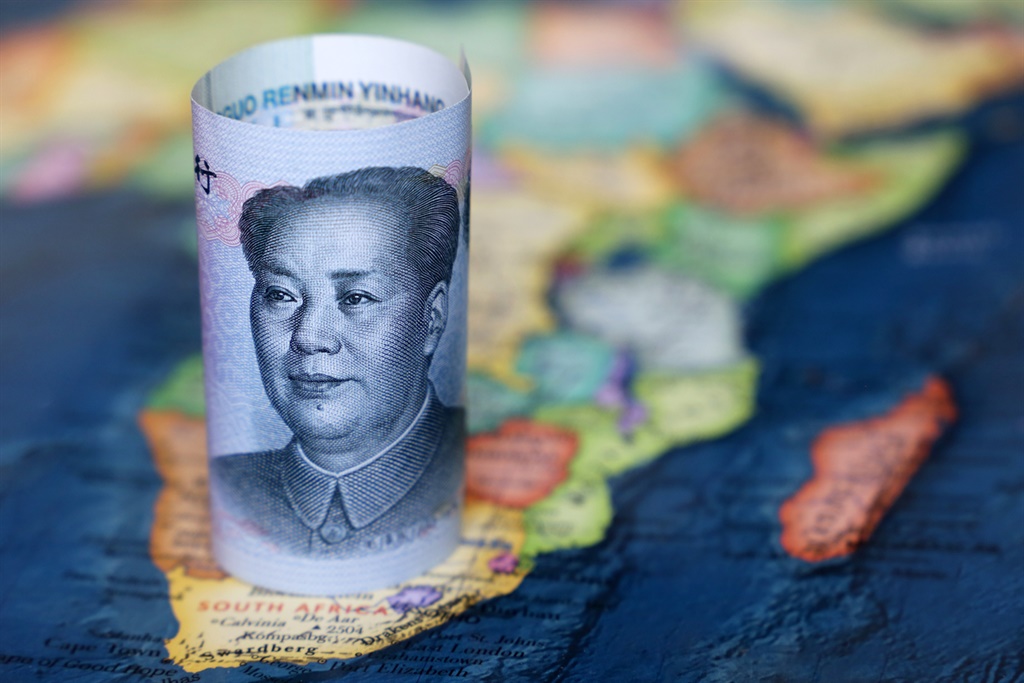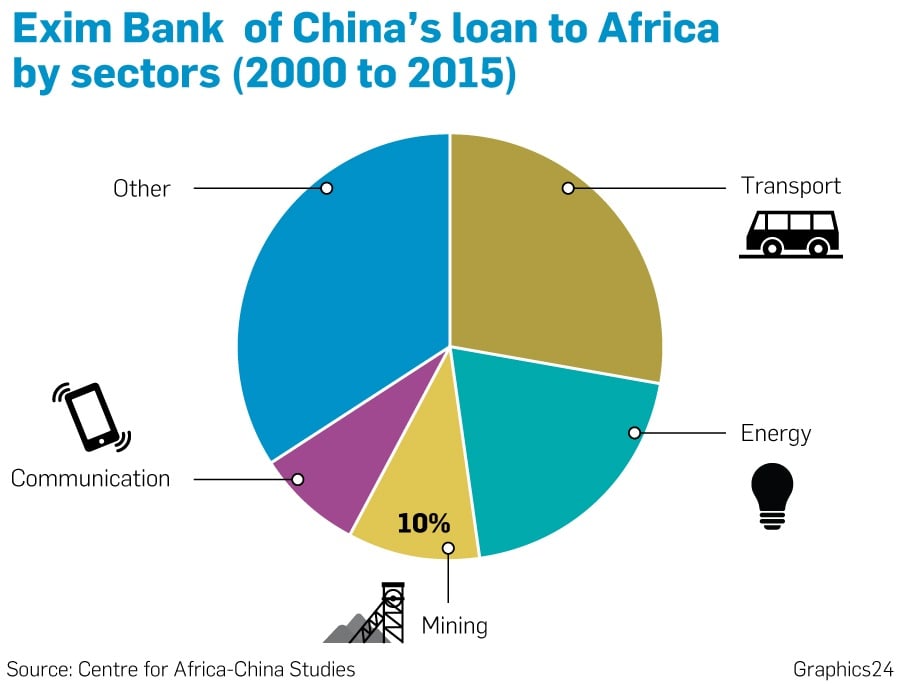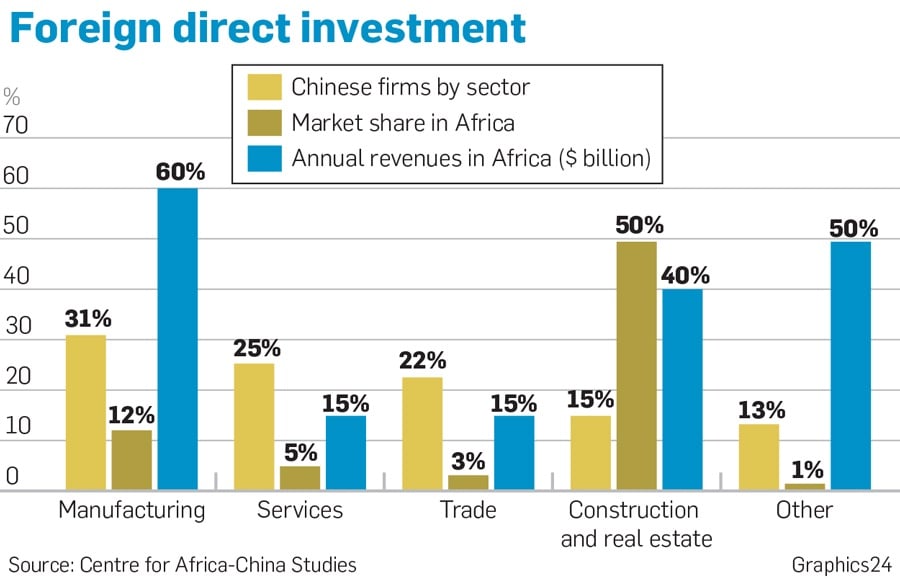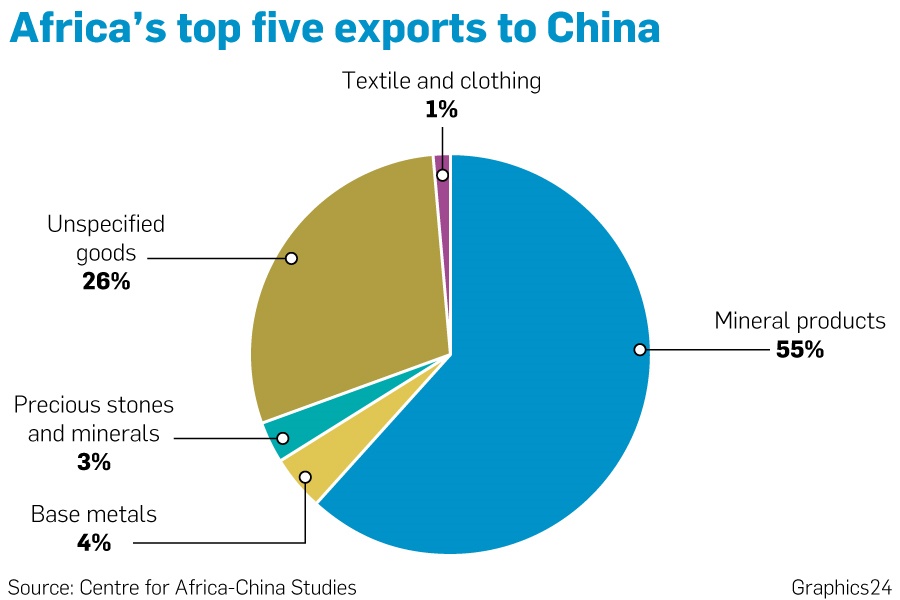
China’s investment interest in Africa may see the Asian superpower unleashing Africa’s barely tapped blue economy potential.
China has an opportunity to play a bigger role in the continent’s development and should embrace the challenge.
This is according to a number of academic speakers who addressed the Africa-China Industrial and Infrastructural Cooperation Conference at the University of Johannesburg earlier this week.
Salim Kaunda, head of research at the Policy Monitoring and Research Centre in Zambia, said China had the experience, resources, technology and goodwill to work with African countries for mutual benefit in advancing the continent’s ocean economy.
He pointed out that China would need to focus on financing strategic energy and water management programmes, the provision of mature artificial rainfall, desalination technologies, water recycling, rainwater purification as well as water-saving irrigation technologies.
Kaunda pointed out that for the intervention to be effective, countries needed to have consolidated programmes for the sustainable use of ocean resources.
“The blue economy looks at water resources and all sectors that pertain to water, including oceans, rivers, lakes and other water resources. What happens in Africa is that we have different ministries of agriculture, fisheries, energy and others,” he said.
Kaunda said the continent exploits only a small portion of its potential for hydroelectric power, which is one of the cleanest forms of energy available.
“The Democratic Republic of the Congo alone has the third-largest hydroelectric potential in the world after China and Russia, but less than 6% of its population has access to electricity.
He said landlocked countries needed to prioritise developing their blue economies by harnessing water resources through their lakes and rivers, which could also be used to supplement the transport system.
“If the continent is to establish a viable blue economy, African countries must begin with a focus on the current limited infrastructure and capacities to preserve water bodies. The second imperative is to establish partnerships, including innovative financing models, preferably driven by the private sector.”
According to Kaunda, water has a vital role to play in responding to the socioeconomic crisis facing the continent, and several economic instruments that are being deployed to address the crisis will depend heavily on the availability of sustainable water resources.
Sub-Saharan Africa’s energy sector has received loans worth $17.5 billion (R261.46 billion) from Chinese lenders since 2014, while oil and gas have received $3.2 billion, and transport $5.5 billion.
“Africa is hungry for energy. Only 50% of sub-Saharan Africans have access to electricity and the energy generation capacity of Africa, excluding South Africa, is estimated at 28GW – equal to that of Argentina alone. The demand is only set to rise with increasing population, urbanisation and economic productivity,” he added
Gedion Jalata from the Center of Excellence International Consult in Ethiopia also pointed out that China had a role to play in developing the agriculture sector across the continent.
He said Africa had abundant natural resources and boasts almost 12% of the world’s arable land, of which 60% remains uncultivated.
“For instance, more than 75% of the total agriculture output in Kenya, Tanzania, Ethiopia and Uganda is produced by smallholder farmers with average farm sizes of about 2.5 hectares,” Jalata said.
He said the biggest Chinese foreign direct investments in Africa were in manufacturing, including the automotive and clothing sectors (31%), followed by services such as banking and travel (25%), and trade such as spare parts retail and local distribution channels for construction machinery (22%).
“Construction and real estate investment constitutes 15%, while the least investment is in agriculture, utilities, mining, as well as oil and gas.”
 |
| ||||||||||||
| |||||||||||||




 Publications
Publications
 Partners
Partners











